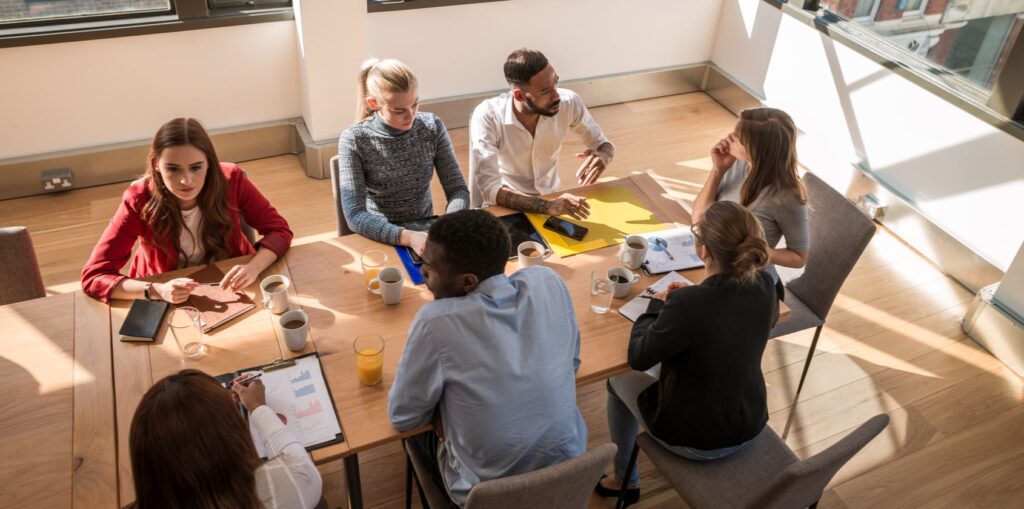In Malta, Pilot 1 of the RevitaLESE project took place in March. Skills Zone Malta (project partner) decided to conduct an interview to assess the actual impact of the training sessions on our participants and their organization. Therefore, the goal is to see whether they already implemented or are in the process of implementing specific ideas into their organizations. For the purposes of this case study, Dagmara, an employee of Skills Zone Malta, interviewed two participants from Malta. Due to data protection, in this publication, we will call them Mrs. N and Mrs. E.
One of the interviewees (an entrepreneur) represents an organization called “Eduphant,” which she founded herself. She organizes talks, seminars & workshops related to self-development. Interestingly, she also owns a YouTube channel where she puts available-to-all videos about self-development and other related issues. We highly recommend checking Eduphant on Facebook and @Bushidobreath on Youtube to learn more.

Dagmara: Thank you so much for participating in our training sessions organized as a part of the RevitaLESE project. The workshops took part two months ago, so we wanted to see if a project has already impacted you and your organization. Therefore, I’d like to ask you four questions to help us assess the impact. The first question is, was there anything (during the workshops) that specifically inspired you and gave you new ideas?
Mrs. N: I was positively overwhelmed and inspired by the number of people already building their enterprise on a Social enterprise model. It encouraged me to continue investing in my ideas based on “less is more” in certain areas.
D: What about you, E?
Mrs. E: I did not know anything about social enterprise, mainly because Malta has no specific policy to address this field, leaving Malta disadvantaged. However, even though there is such a situation in Malta, I was highly interested to learn more about the different social enterprise business models, sources of funding, and the European social economy action plan.
D: We are happy to hear many inspiring topics were mentioned during our workshops. Such answers make me wonder if you have implemented anything into your organization/business. If yes, what is it? If not, are you planning to do so?
N: I have been doing this business for some years; however, I offered my services for free because I never saw my enterprise as a money factory. Learning about the Social Enterprise model, I understood that making money from my service can and will self-sustain whilst building the funds for more service. I also made contacts and executed a particular course for widowers at a charge during the course. This was my very 1st paid Job.
E: When it comes to me, I created the PHA and PFFA websites since the course, and I am about to launch the social media pages using the knowledge I gained. In fact, I would like to create a social enterprise as it is a community-based project. I also am planning to establish a health clinic for the community.
D: It sounds fantastic! E, you mentioned that you are about to launch the social media pages. Do you both think that digital resources are essential in your organization? And, of course, how and what specific things can you implement?
E: Yes, digital resources are vital for awareness. I already use Facebook and Instagram for my current business, but I would like to be able to use Canva better.
N: Yes. To prepare for the talks, I need digital resources for presentations, building up documents for the audience to work on, etc. In the future, I will also look into giving courses online and getting paid.
D: Thank you. So, in the end, is there anything you wished we taught you during the workshops that would benefit your organization’s improvement?
E: I understand that time is always limited, but there are certain things I wish I had learned. That includes knowledge of the EU funding section work or how to sell a social enterprise or how. The other thing is that I understand how corporate activity and corporate finance work for corporate structures, but I’d like to learn more about how this work for social enterprise. And lastly, I’d love to learn how the use other digital resources like Telegram, Rumble, Web 3.0, YouTube, and TikTok.
N: When it comes to me, I would like to get more information and training on how to use social media as a marketing tool. I’m talking about details such as the best time to post and publish and what tools to use to build up flyers, links, and more. And, of course, I’d really appreciate learning more about how to make the website more attractive.
D: Thank you so much for sharing. We certainly will try to insert some of the ideas you proposed into Pilot 2. I’d also like to thank you for taking part in this interview. It helps us see which topics were the most useful for you. In fact, we are overjoyed that you’ve already implemented some of the things into the functioning of your organization.

Based on the interview conducted by Skills Zone Malta, we can note that both participants had limited knowledge about the social economy sector before the training, as Malta has no specific policy. Such a statement also shows the project consortium that each country has different social economy regulations; therefore, the RevitaLESE training can impact all partner countries differently.
The Maltese participants, however, took a lot out of the training we provided. They had gained a broader knowledge of social media, finances, social enterprise models, etc., which they could later implement in their organizations.
Summing up, Maltese participants’ answers provide us with an insight that pilot 1 of the RevitaLESE project was successful as the participants implemented specific tools into their organizations.
___
Get to know other stories from across Europe in the section on Case studies.

